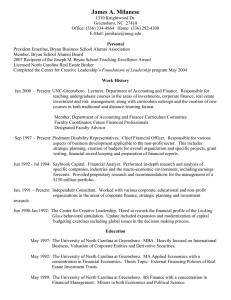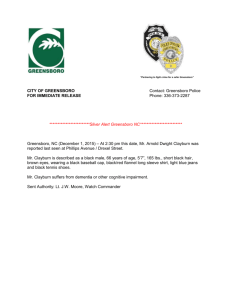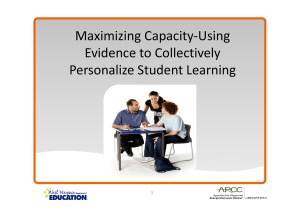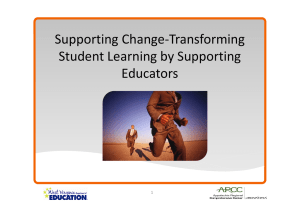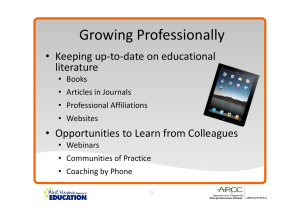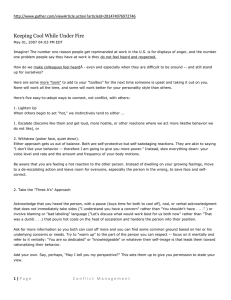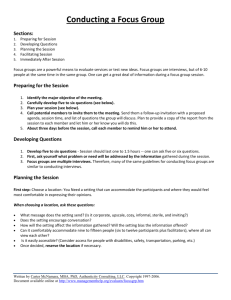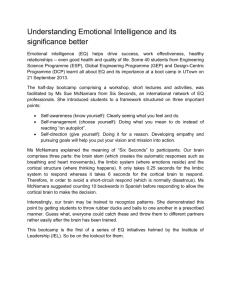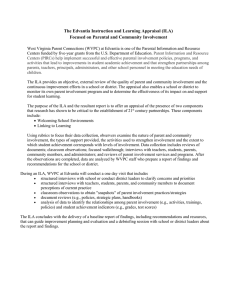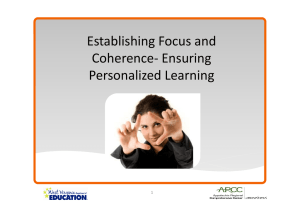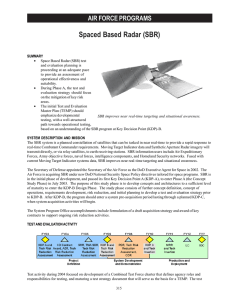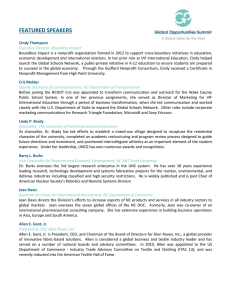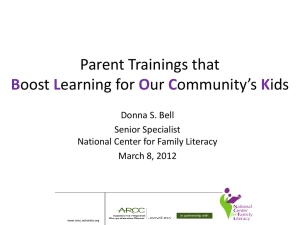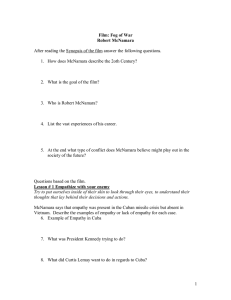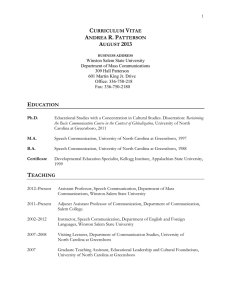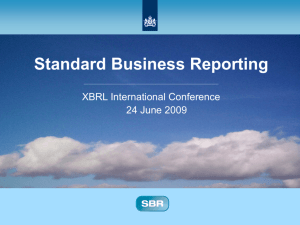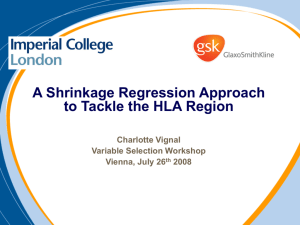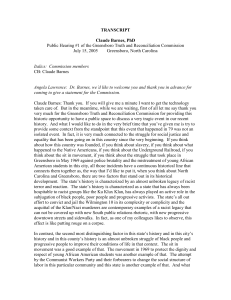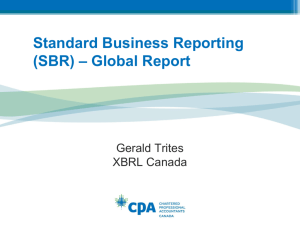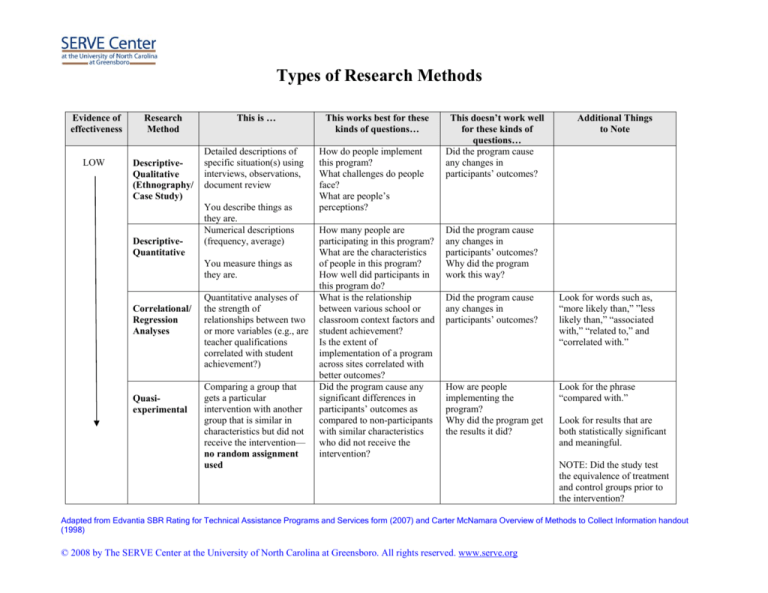
Types of Research Methods
Evidence of
effectiveness
Research
Method
LOW
DescriptiveQualitative
(Ethnography/
Case Study)
DescriptiveQuantitative
This is …
Detailed descriptions of
specific situation(s) using
interviews, observations,
document review
You describe things as
they are.
Numerical descriptions
(frequency, average)
You measure things as
they are.
Correlational/
Regression
Analyses
Quasiexperimental
Quantitative analyses of
the strength of
relationships between two
or more variables (e.g., are
teacher qualifications
correlated with student
achievement?)
Comparing a group that
gets a particular
intervention with another
group that is similar in
characteristics but did not
receive the intervention—
no random assignment
used
This works best for these
kinds of questions…
How do people implement
this program?
What challenges do people
face?
What are people’s
perceptions?
How many people are
participating in this program?
What are the characteristics
of people in this program?
How well did participants in
this program do?
What is the relationship
between various school or
classroom context factors and
student achievement?
Is the extent of
implementation of a program
across sites correlated with
better outcomes?
Did the program cause any
significant differences in
participants’ outcomes as
compared to non-participants
with similar characteristics
who did not receive the
intervention?
This doesn’t work well
for these kinds of
questions…
Did the program cause
any changes in
participants’ outcomes?
Additional Things
to Note
Did the program cause
any changes in
participants’ outcomes?
Why did the program
work this way?
Did the program cause
any changes in
participants’ outcomes?
Look for words such as,
“more likely than,” ”less
likely than,” “associated
with,” “related to,” and
“correlated with.”
How are people
implementing the
program?
Why did the program get
the results it did?
Look for the phrase
“compared with.”
Look for results that are
both statistically significant
and meaningful.
NOTE: Did the study test
the equivalence of treatment
and control groups prior to
the intervention?
Adapted from Edvantia SBR Rating for Technical Assistance Programs and Services form (2007) and Carter McNamara Overview of Methods to Collect Information handout
(1998)
© 2008 by The SERVE Center at the University of North Carolina at Greensboro. All rights reserved. www.serve.org
Types of Research Methods
Evidence of
effectiveness
Research
Method
Experimental
Meta-analysis
This is …
This works best for these
kinds of questions…
Using random
assignment to assign
participants to an
experimental or treatment
group and a control or
comparison group (e.g.,
one receives the
intervention and one does
not)
Did the program cause any
significant differences in
participants’ outcomes as
compared to the control
group’s outcomes?
Synthesis of results from
multiple studies to
determine the average
impact of a similar
intervention across the
studies
Over all studies conducted on
a particular intervention or
strategy, what can be said
about the direction or
strengths of the impacts?
What does the totality of
research studies say about the
effectiveness of a program?
This doesn’t work well
for these kinds of
questions…
How are people
implementing the
program?
Additional Things
to Note
Look for words such as,
“causes” or “leads to.”
Look for results that are
both statistically significant
and meaningful.
How are people
implementing the
program?
What are people’s
perceptions?
HIGH
NOTE: The intervention
should be clearly defined
so that you know what it
was designed to entail, and
to what extent it was
implemented in the study.
Also look for information
on the experience of the
control group.
Look for selection criteria
used to include studies and
look for measures of effect
size.
Look for differences in
results among the studies.
Do some studies show
positive results while others
show negative or do all
studies show positive
results?
Adapted from Edvantia SBR Rating for Technical Assistance Programs and Services form (2007) and Carter McNamara Overview of Methods to Collect Information handout
(1998)
© 2008 by The SERVE Center at the University of North Carolina at Greensboro. All rights reserved. www.serve.org

